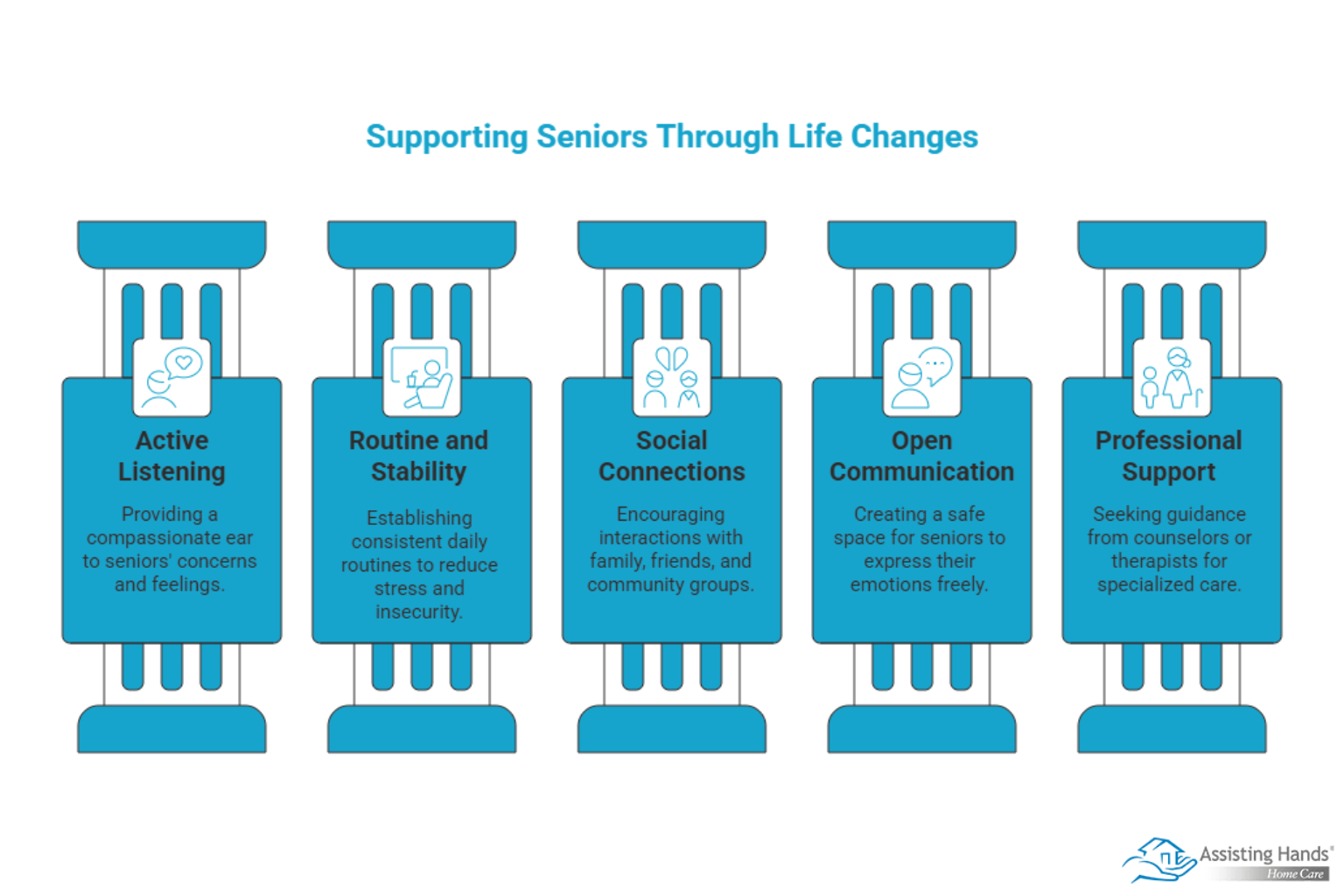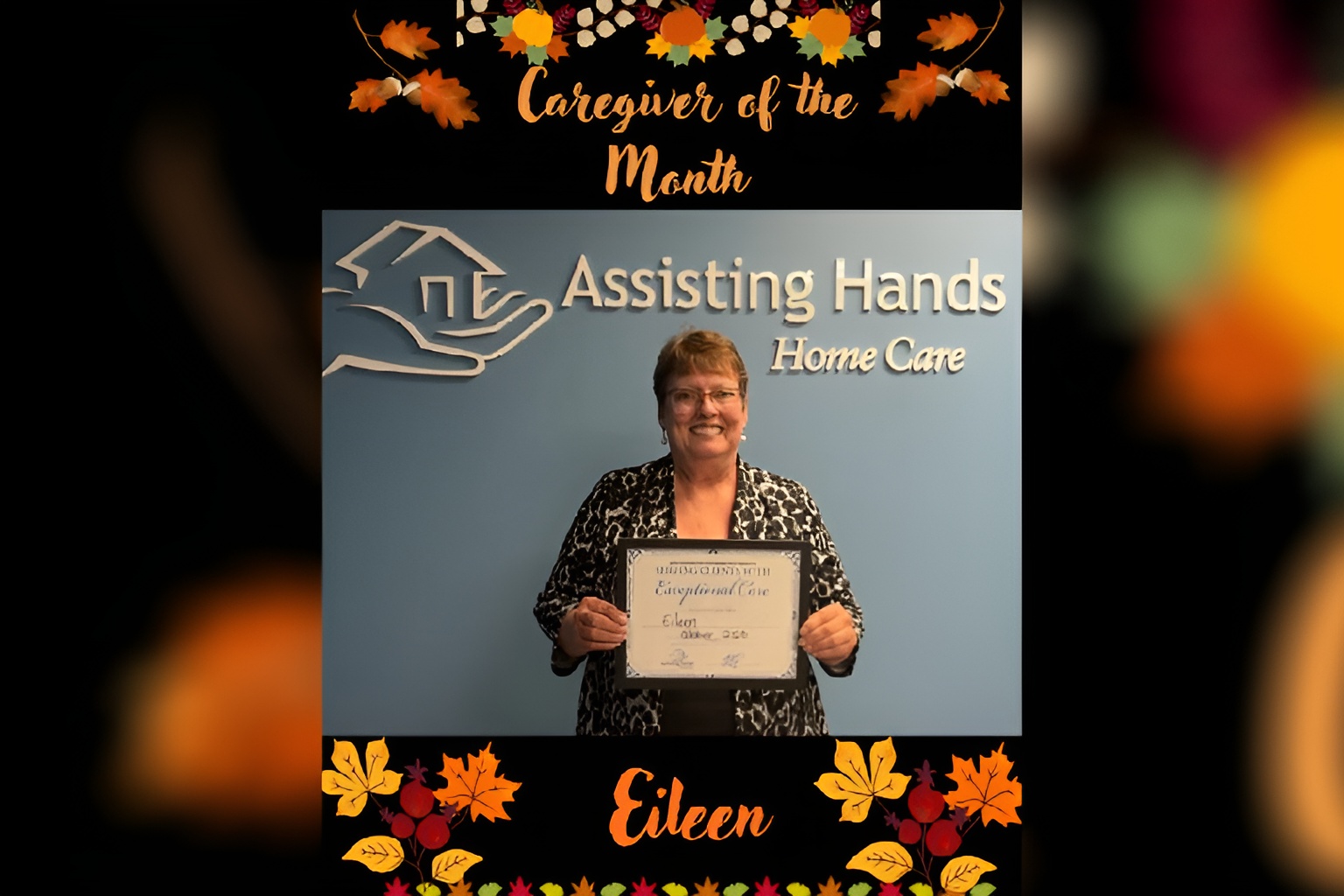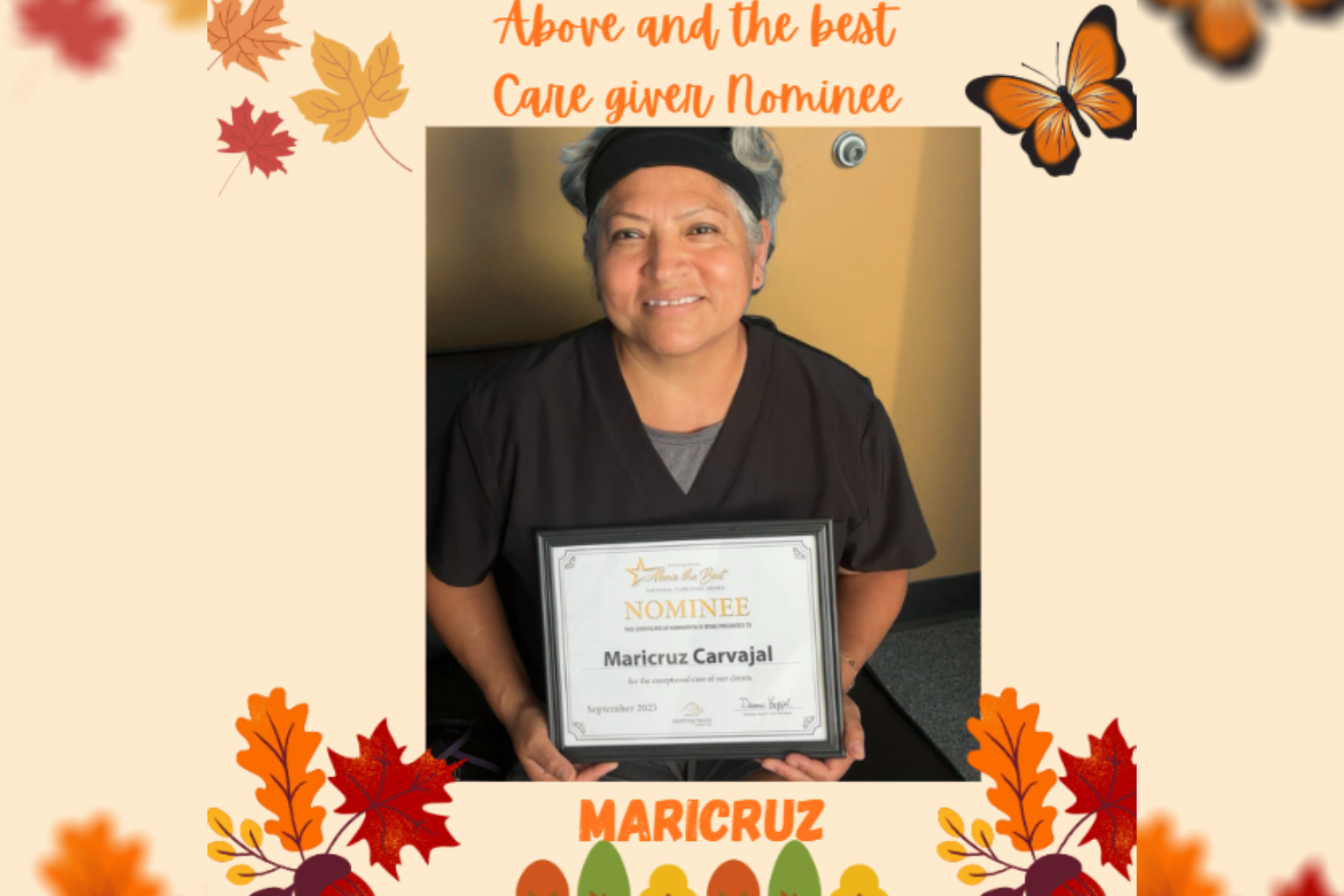
Table of Content
Big life transitions, such as retirement, moving to a new home, or losing a spouse, can be especially challenging for a senior. Emotional support plays a crucial role in helping older adults adjust and maintain their wellbeing during these times. By understanding their needs and providing meaningful assistance, loved ones can make these transitions smoother and less overwhelming for seniors.
Be an Active Listener
Sometimes, seniors simply need someone to listen to them without judgment. Big life changes often bring a wave of emotions, such as grief, anxiety, or worry about the future. By providing a compassionate ear, you can help your senior loved one feel heard and valued.
- Avoid interruptions while your loved one is speaking, and make eye contact to ensure he or she has your full attention.
- Use encouraging phrases like “Tell me more about that” or “How are you feeling about it?”
- Validate your loved one’s emotions by acknowledging his or her feelings, even if you can’t fully relate, with statements like “I can see why this would feel overwhelming.”
Being an active listener signals to the seniors in your life that their thoughts and concerns matter, which can foster emotional relief.

Promote Routine and Stability
Life transitions often disrupt familiar routines for seniors, which can contribute to feelings of insecurity or stress. Encouraging stability and consistency can help them regain a sense of normalcy.
- Establish daily routines, including regular mealtimes, hobbies, and activities.
- Encourage small rituals your loved one enjoys, such as a morning cup of coffee, reading a favorite book, or an evening walk.
- If your loved one has moved to a new environment, assist in recreating comforting spaces by arranging familiar belongings like photos, furniture, or décor.
Maintaining a sense of stability can provide emotional grounding during otherwise turbulent changes.
Seniors can face a variety of challenges as they age, many of which can be mitigated with the help of professional in-home caregivers who provide high-quality homecare. Trust Assisting Hands Home Care to help your elderly loved one age in place safely and comfortably.
Encourage Social Connections
Isolation is a common challenge for seniors during big life changes, particularly if they’ve experienced a move or the loss of a loved one. Staying socially connected can do wonders for their emotional health.
- Facilitate visits with family members, friends, or old acquaintances.
- Introduce your loved one to local senior clubs, classes, or community events where he or she can meet new people.
- Help your loved one leverage technology by teaching him or her how to use video calls, email, or social media to stay in touch with family and friends.
A rich social network not only combats loneliness but also provides seniors with emotional support from multiple sources.
For families living in Libertyville, respite care can be a wonderful solution when their aging loved ones need companionship and socialization a few hours a week or just need minor assistance with daily household tasks. At Assisting Hands Home Care, we thrive on helping seniors maintain their independence while living in the comfort of home.
Encourage Open Conversations about Their Feelings
Sometimes, seniors may hesitate to talk about their emotions, either out of fear of burdening others or simply not knowing how. Creating a safe space for open discussions can make a big difference.
- Use gentle, open-ended questions like “How have things been for you lately?” or “What’s been on your mind?”
- Reassure your loved one that it’s okay to talk about feelings of sadness, fear, or uncertainty.
- Be patient if your loved one is reluctant at first. Trust takes time, especially during vulnerable periods.
Open communication can not only help you understand your loved one’s needs better but also foster emotional closeness.
Encourage Professional Support when Needed
While emotional support from loved ones is essential, some transitions may require guidance from a professional, such as a counselor or therapist specializing in geriatric care.
- Discuss the benefits of professional help, emphasizing that seeking support is a strength, not a weakness.
- Offer to help your loved one find a trusted counselor or set up an appointment.
- Look into locally available support groups for seniors facing similar challenges, where your loved one can share experiences and advice.
Professional guidance can offer seniors coping tools and strategies tailored to their unique circumstances, giving them added resilience during transitions.
If you have a senior loved one who needs help maintaining a high quality of life while aging in place, reach out to Assisting Hands Home Care, a leading provider of elderly home care Libertyville families can trust. Our caregivers help seniors focus on healthy lifestyle habits such as eating nutritious foods, exercising regularly, and maintaining strong social ties, and we offer mentally stimulating activities that can boost cognitive health and delay the onset of dementia. Call today to speak with a friendly and experienced Care Specialist to formulate a home care plan for your loved one.






